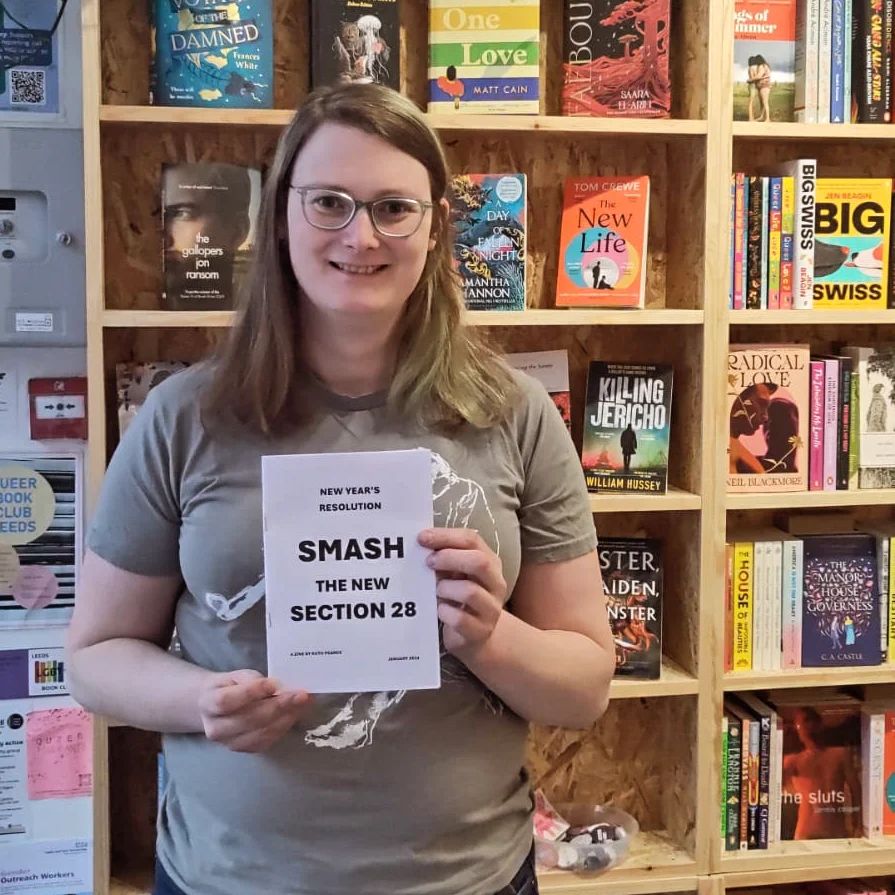This is the second in a short series of posts on my recent trip to Aotearoa. See also:
Part 1: Trans health and rainbow futures.
During my April/May visit to Aotearoa (New Zealand) I picked up a lot of amazing resources. In this blog post, I share some brief reflections on three great documents which contain an enormous amount of interesting and useful material produced by and for Rainbow communities (takatāpui, lesbian, gay, bi, trans, intersex and queer people), on topics that include disability, Māori experiences of gender and sexuality, and affirmative care.
These documents will be of interest to people who want to know more about rainbow activism, communities and healthcare in Aotearoa, but also clearly have a wider relevance and importance. In writing about them, my intention is to highlight the expert contribution of the authors. As a UK-based scholar and activist, I learned a great deal and it is my hope that readers will too.
All of Us
 “Imagine how engaged our communities would be if we were curious about our strengths and values, rather than our limitations.”
“Imagine how engaged our communities would be if we were curious about our strengths and values, rather than our limitations.”
This beautifully illustrated guide addresses topics such as structural stigma, intersectionality, accountability, minority stress and (de)colonialism from the perspective of a queer disabled politics. It promotes a mode of solidarity and understanding that recognises and works with difference.
All of Us was created by Stace Robertson, a queer trans man of Pākehā (European or non-Māori) descent who lives with Cerebral Palsy.
Robertson explains that the project came about after he noticed that people are often not fully included even in minority communities if they experience multiple forms of marginalisation.
He therefore decided to create a resource that shared the perspective of people with these experiences, drawing on that advise of mentors, and advisory group and 14 people from a range of backgrounds who offered to share their stories in the document.
This resource will be of interest to people who want to learn more about experiences of multiple marginalisation. It will be useful to those who are new to this topic, as well as those who want to understand more about factors such as ableism or migrant status impact LGBTIQ experience and vice-versa.
There is also an excellent easy-read version of the guide available in the second half of the document.
Takatāpui: Part of the Whānau
 “Takatāpui is a traditional term meaning ‘intimate companion of the same sex.’ It has been reclaimed to embrace all Māori who identify with diverse genders and sexualities such as whakawāhine, whakawāhine, lesbian, gay, bisexual, trans, intersex and queer.”
“Takatāpui is a traditional term meaning ‘intimate companion of the same sex.’ It has been reclaimed to embrace all Māori who identify with diverse genders and sexualities such as whakawāhine, whakawāhine, lesbian, gay, bisexual, trans, intersex and queer.”
The document was created to provide information and support for takatāpui and their whanau (family), but it will also be of interest to people wanting to learn more about mātauranga Māori (Māori knowledge or wisdom) with regards to sexual and gender diversity. It was written by Dr Elizabeth Kerekere, a renowned takatāpui activist, scholar, and founder/chair of the Tīwhanawhana Trust.
Through colonialism, Aotearoa inherited the sexism and homophobia of the British legal system. Takatāpui narrative were erased through pathologisation, colonial records, and the imposition of the nuclear family model. In light of this, Kerekere highlights the importance of pre-colonial histories, and of contemporary resilience and the importance of pride, family and community support.
In the UK, we have begun to talk more in recent years about how binary gender norms were imposed on many societies by British invaders through colonialism. These conversations can only become deeper and more nuanced through respectful engagement with knowledge produced by Indigenous peoples on this topic, rather than relying on the flawed work of colonial anthropologists. As a white trans woman who experiences both gender marginalisation and unearned privileges afforded by the legacy of colonialism, I am grateful for the opportunity to learn directly from takatāpui perspectives.
Guidelines for Gender Affirming Healthcare for Gender Diverse and Transgender Children, Young People and Adults in Aotearoa New Zealand
 “These guidelines are based on the principle of Te Mana Whakahaere; trans people’s autonomy of their own bodies, represented by healthcare provision based on informed consent.”
“These guidelines are based on the principle of Te Mana Whakahaere; trans people’s autonomy of their own bodies, represented by healthcare provision based on informed consent.”
These guidelines were produced by a coalition of healthcare practitioners, academics and community members, with the support of the Northern Region Clinical and Consumer Advisory Group. They are intended to supplement the World Professional Association for Transgender Health Standards of Care, providing guidance relevant to District Health Boards in providing gender affirming healthcare throughout Aotearoa.
An important feature of the guidelines is the use of Māori health expert Professor Mason Durie’s health framework. The document highlights two key principles for health promotion development: Te Mana Whakahaere (autonomy) and Ngā Manukura (community leadership). There is therefore is an emphasis on trans and gender diverse people having collective control over their own destiny and decisions around healthcare.
Furthermore, Te Whare Tapa Whā, as described by Durie, conceptualises health and wellbeing as the four cornerstones of the wharenui (meeting house). As noted in the guidelines, this model recognises the equal importance of Taha Wairua (spiritual health), Taha Whānau (family health), Taha Hinengaro (mental health) and Taha Tinana (physical health). These four cornerstones provide the structure for the document.
Consequently, the guidelines highlight topics such as Māori and Pasifika genders, minority stress, social transition, health in the family and in schools, and mental health, positioning these as equally important a consideration as physical transition (for those who desire/require medical interventions). This strikes me as a really important move, de-centring hormones and surgery to instead provide a more holistic view on trans health needs.
Like many similar documents, the guidelines are not perfect. I met a number of clinical practitioners in Aotearoa who considered this document to be a good starting point for conversations around improving care, but with some limitations outside of the relatively well-resourced Northern region in which they were primarily written. I have my own concerns around the citation of somewhat inaccurate information produced by cis clinical researchers (for example, Table 5, based on the Endocrine Society Guidelines, underestimates how long it might take for certain bodily changes to take place). I also feel that the definition of “informed consent” used in the document could perhaps benefit from tightening to specify what does and does not constitute appropriate oversight in determining whether or not patients are “adequately prepared” for medical interventions.
Regardless, I am deeply grateful for the work from so many people that goes into producing guidelines such as this, and I hope they can contribute usefully to the ongoing depathologisation of trans health.




